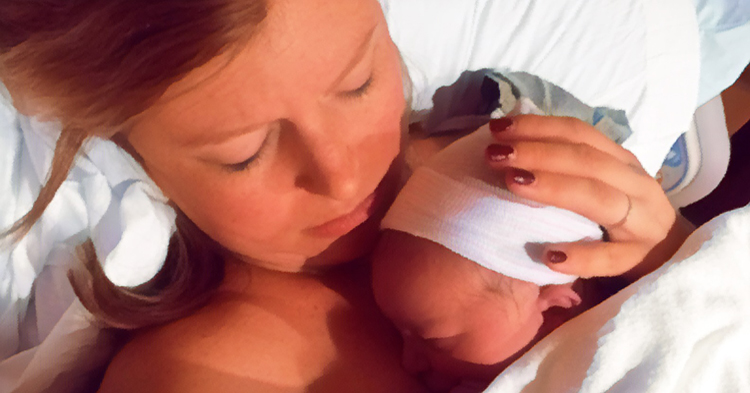Real talk: Breastfeeding can be really hard. At least it was for me, especially in the beginning. It hurt (a lot, at first) and takes practice. So. Much. Practice. When the nurses first put my baby in my arms and I tried nursing for the first time, it felt awkward. And my baby’s mouth was so tiny that it was difficult for her to latch properly. I tried over and over again with the help of nurses and lactation consultants, but my daughter wasn’t getting the hang of it and neither was I.
After unsuccessfully trying something called a nipple shield, the nurse had me hand-express breast milk into a plastic spoon. Then what? Well, I spoon-fed my baby bird girl. While not how I’d imagined her first feeding, it got some milk into her tiny body.
Two hours later, we tried the old-fashioned way again. I tried different nursing positions but felt most comfortable using the standard cradle hold. Needless to say, I was beyond grateful for the nurses and lactation consultants with their tips, tricks and “That’s a great latch!” encouragement. We sort of got the hang of it.
But I was still very anxious about leaving the hospital and having to do this on my own at home, every two hours or so. When the nurses kindly created a throne of pillows to make me more comfortable while nursing—towers of pillows supporting each arm and a few behind my back and head—I began to panic because I knew we only had about four pillows at home. How was I supposed to recreate this every time my baby needed to feed?
Despite the love and support from my husband, I still felt a little helpless in those first few days at home, nursing solo. I relied heavily on lanolin—a lifesaver when nursing is painful in those first few weeks—and consulted many a website on breastfeeding. I wish I had known about the Birth to Five Helpline in those days! But after weeks of practice and discovering the side-lying nursing position, we got into a good breastfeeding groove, and my earlier concerns faded away.
A few years later, when we had our second baby, I thought breastfeeding would be no problem. I told myself, ‘I’ve got this. Been there, done that.’ I figured I had this on lock. But I didn’t. Turns out breastfeeding can be just as tricky the second time around. While in the hospital, I had to really speak up to request a lactation consultant. Since I wasn’t a first-time mom, they assumed I didn’t have as many questions. It did help to know from experience that things would get better after this tough beginning phase.
Fast forward to present day, and both of my children are healthy and well-fed. Which, at the end of the day, is the main goal, right? So whether you breastfeed, pump or use formula, know that you are doing your best to give your child a healthy start in life.
More information and resources:
- American Academy of Pediatrics – articles on breastfeeding
- La Leche League of Arizona – help and encouragement in-person and on the phone
Bethany Cone is communications coordinator at First Things First.



